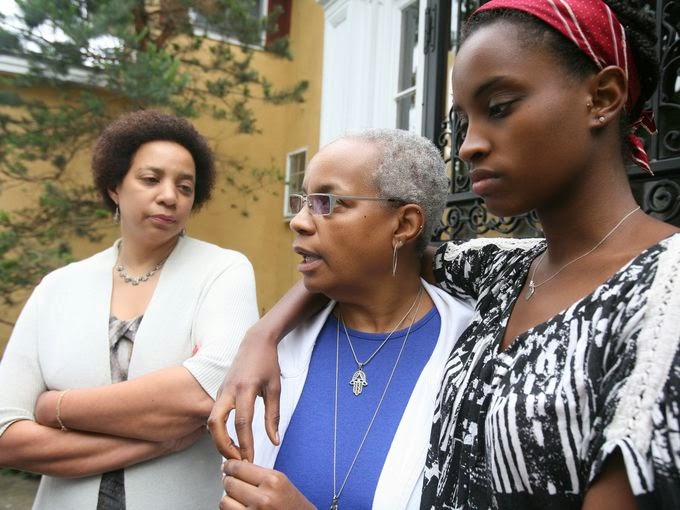"
Ruby Dee, the actress and civil rights activist equally at home on
Broadway, TV, film or on a protest marchoften alongside Ossie Davis,
her husband of 56 years — died Wednesday in her New Rochelle home,
surrounded by family and friends, her daughter Nora Davis Day said.
While
she had not been in the public eye in recent years, Dee remained not
far from the public consciousness, getting two mentions at Sunday's Tony
Awards.
Accepting the honor for best leading actress in a play,
Westchester's Audra McDonald said: "I want to thank all the shoulders of
the strong and brave and courageous women that I am standing on. I am
standing on Lena Horne's shoulders. I am standing on Maya Angelou's
shoulders. I am standing on Diahann Carroll and Ruby Dee and, most of
all, Billie Holiday. You deserve so much more than you were given when
you were on this planet. This is for you, Billie. Thank you so much."
In
his acceptance speech for best play revival winner, "A Raisin in the
Sun," director Kenny Leon again invoked Dee, who created the role of
Ruth Younger, a role that would later be played by McDonald in a
Tony-winning performance.
Said Leon: "We accept this on behalf of
Lorraine Hansberry and those like her, like James Baldwin, Langston
Hughes, August Wilson, Lloyd Richards, and those who are still with us,
like Sidney Poitier and Ruby Dee. We love you. Thank you."
When she thinks of her mother, Day said she hearsI hear her commitment to words. She always called herself 'a word
worker,'<TH>" Day said. "She delighted in language, as did my dad.
People don't realize she was a writer, a poet and she loved rhythms and
the comingling of rhythms and point-counterpoint and making jazz out of
words."
In photos, Davis towers over the diminutive Dee, but Day said people underestimated her mother at their peril.
"Let's
put it this way," she said. "She had to teach my dad how to throw a
decent punch. She was really a serious person. She was a force of
nature."
Among the myriad memories of her mother's long life was the way she made her children feel.
"She
always made us proud of who we were," Day said. "As a young black girl
in the early '60s, my hair was always an issue. This was right before
Afros. And she used to help me design things to do with my natural hair
and talk about putting sequins in it. She taught us to glory in who we
were."

No comments:
Post a Comment